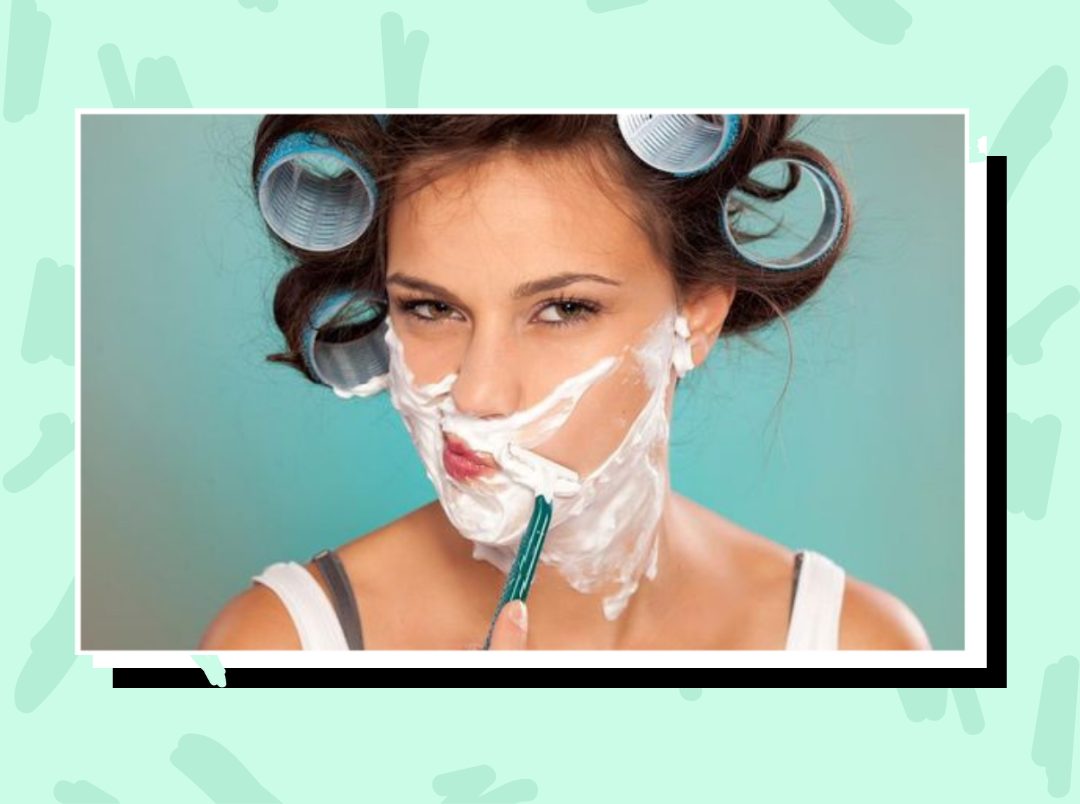
A razor in your shaky hand. Blood-stained tissue paper stuck on the chin. Second guessing your peach fuzz removal decision?
If this sounds like your recent shaving experience, maybe you jumped on the facial-hair-removal bandwagon without due diligence. Surely, face shaving has a multitude of skincare benefits like dead skin removal, even skin texture, and a buttery-smooth makeup application. But you’ve got to use the correct technique to reap the fruit of your painless hair-removal sesh.
We got in touch with Dr Yuti Nakhwa, Consultant, Dermatology & Cosmetology, Global Hospital, Mumbai to get it right. She explained to us all about the two main shaving techniques and helped us understand which one works best. Read on:
Shaving Along The Hair Grain
Shaving along the hair grain means moving the razor in the direction of the hair growth. “Take a closer look at your peach fuzz in the mirror to figure out the direction. You can use a tiny comb to confirm. Hair growing with the grain will feel as if you are just combing it down back into place,” explains Dr. Yuti.
Pros
“Shaving along the grain is more comfortable as the razor tends to glide on smoothly. This reduces friction,” says Dr. Yuti. “It can prevent rashes, irritation, razor burns, and cuts. It can also keep post-shaving ingrown hair at bay,” she adds.
You can use Sirona’s Blink & Glow Facial Razor to do the job. Its stainless steel blade can help remove the peach fuzz in a single swoop. Plus, the fine tooth guard can help prevent cuts and burns.
Another way to get the best out of shaving along the grain is to apply Sirona’s Post Wax & Shave Gel immediately after the hair removal. Packed with ingredients like aloe vera, chamomile, and green tea, it can instantly soothe irritated skin and prevents ingrowns too.
Cons
“Shaving along the hair grain may not always give you a close shave. In case of women with coarse facial hair or those with dense growth, this technique may be ineffective in removing the hair completely,” points out Dr. Yuti.
Shaving Against The Grain
As the name suggests, this technique involves moving the razor against the direction of the hair growth. “If the comb experiment leads to your hair standing upright, it means you’re combing against the grain,” says Dr. Yuti.
Pros
You can call it a close-shave quick-fix because it can give you a smoother post-shave effect that you envisioned. Dr. Yuti explains the reason behind it: “Shaving against the grain pulls the hair follicle up and away from the skin. This allows the razor blade to tug the hair and remove it closely,” she says.
Cons
Unfortunately, the cons of shaving against the grain outweigh the pros. For starters, it can increase friction between the hair and the razor blades. Secondly, it can irritate the skin. “Despite giving a closer shave, shaving against the grain can infect the hair follicle or lead to razor burns, redness, and bumps. It can also cause ingrowns and make the skin look uneven,” Dr. Yuti warns.
The Verdict
According to Dr. Yuti, the safest way to shave is to move along the grain of the hair. However, if it doesn’t fetch you the desired results, you can shave across the grain rather than shaving against it. “Shaving across the grain means keeping the razor perpendicular to the direction of your hair growth,” Dr. Yuti says.
It can fulfil your flawless-skin dreams by giving you a closer shave. No risk of cuts and burns involved. Only smooth, soft skin for the win.
Featured Image: Pinterest